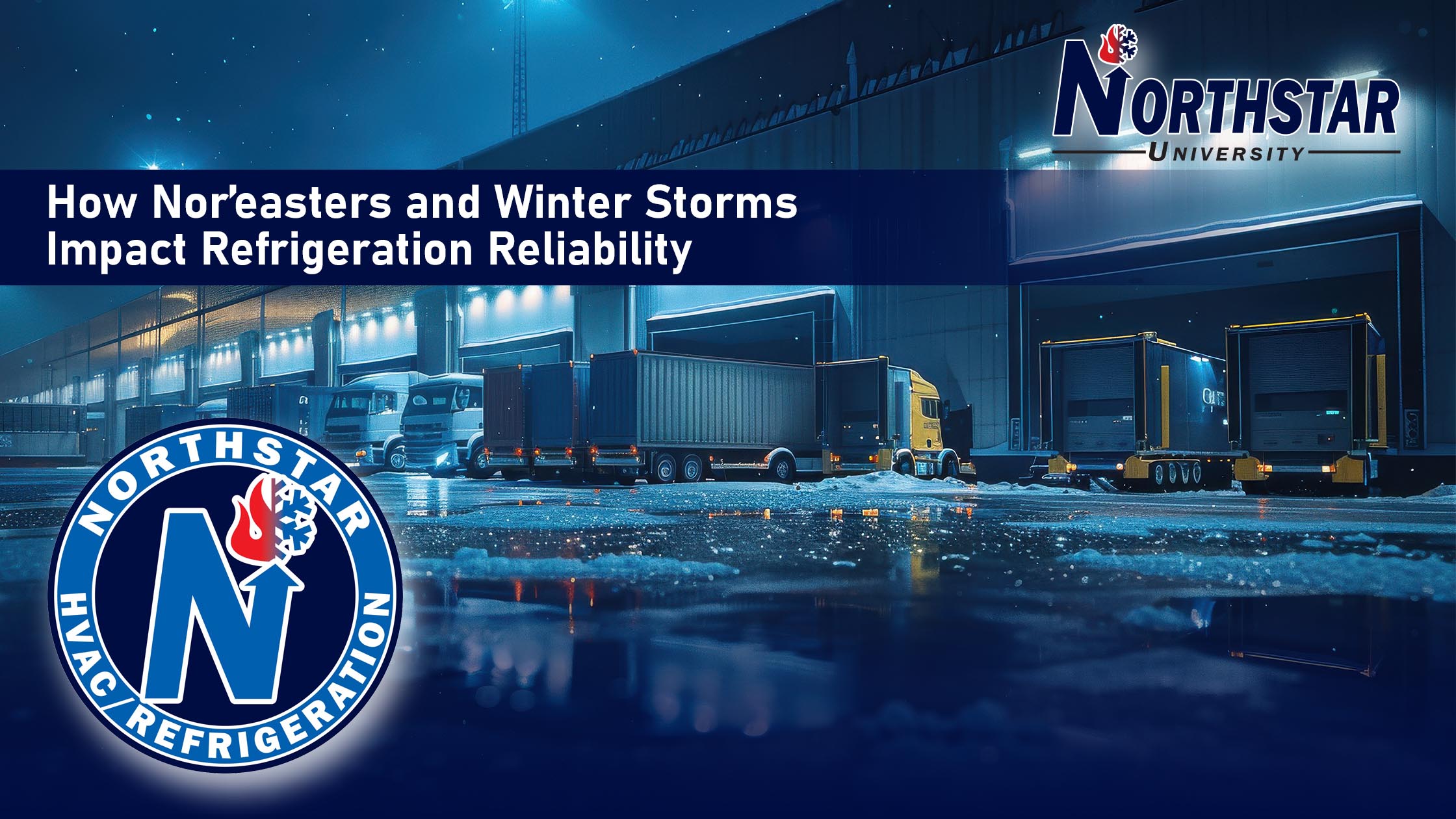How Nor’easters and Winter Storms Impact Refrigeration Reliability
How Nor’easters and Winter Storms Impact Refrigeration Reliability
As New Englanders, we know that winter doesn’t take it easy on anyone — and your refrigeration systems are no exception. When Nor’easters and powerful winter storms hit, the combination of freezing temperatures, high winds, and power disruptions can challenge even the most well-maintained equipment.
For commercial and industrial facilities that rely on consistent cooling — from food processors to cold storage warehouses — system reliability during these events isn’t optional. It’s mission-critical.
Let’s take a closer look at how severe winter weather can affect refrigeration operations and what steps you can take to protect your system and your bottom line.
The Impact of Winter Storms on Refrigeration Systems
1. Power Outages and Voltage Fluctuations
Power interruptions are the most immediate threat during Nor’easters. Even short outages can cause compressor short cycling, control faults, and temperature spikes in critical storage spaces. Extended downtime can lead to product loss and equipment stress once power is restored.
Mitigation Tip: Install surge protection devices and uninterruptible power supplies (UPS) for sensitive controls. Having a standby generator or backup power plan ensures system continuity.
2. Extreme Cold and Component Stress
While refrigeration systems are designed for low temperatures, extreme cold can still impact mechanical components. Oil viscosity increases, belts and seals can stiffen, and outdoor condensers may experience frosting or ice buildup that reduces efficiency.
Mitigation Tip: Ensure crankcase heaters are functioning, insulate exposed lines, and monitor oil pressure levels regularly. Preventative maintenance can help avoid startup issues when temperatures plummet.
3. Blocked Airflow and Snow Accumulation
Snow drifts and ice can restrict airflow to outdoor condensers and evaporators. When air movement is limited, systems must work harder to reject heat, which can lead to higher energy usage or mechanical failure.
Mitigation Tip: Keep outdoor units clear of snow, ice, and debris. Create a snow management plan for equipment areas and ensure critical components are elevated or shielded where possible.
4. Moisture and Corrosion
The combination of melting snow and freezing rain increases moisture exposure around outdoor electrical components. This can accelerate corrosion and lead to sensor malfunctions or electrical shorts.
Mitigation Tip: Inspect weatherproofing seals and conduit connections. Regular maintenance and corrosion-resistant coatings can protect sensitive components through harsh winter conditions.
5. Remote Monitoring and Early Alerts
Modern refrigeration systems equipped with remote monitoring and automation can detect temperature deviations, power disruptions, or component malfunctions before they become critical.
Mitigation Tip: Consider integrating remote system monitoring to track performance in real time and get instant alerts during severe weather — keeping your maintenance team one step ahead.
How Northstar Refrigeration Can Help
At Northstar, we understand the unique challenges that winter brings to commercial and industrial refrigeration systems across New England.
Our proactive maintenance programs and 24/7 emergency response team help ensure your system remains reliable — no matter how strong the storm.
We can also help assess your system’s cold-weather readiness and recommend preventive measures to reduce downtime and product loss.
📞 Contact our team today to prepare your facility for the unpredictable New England winter. (508)888-3692
Do you have questions about this topic?
📧 Email sales@northstarhvacr.com to discuss predictive maintenance and monitoring options for your business.

